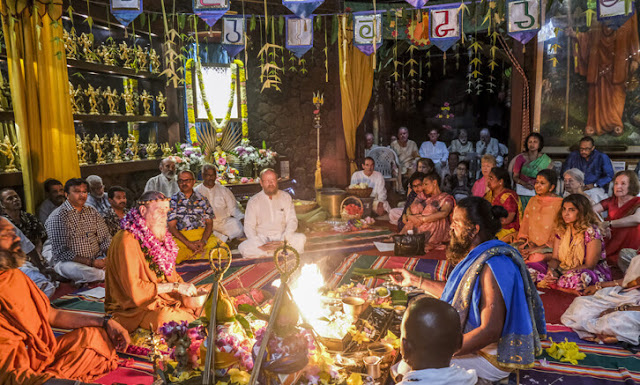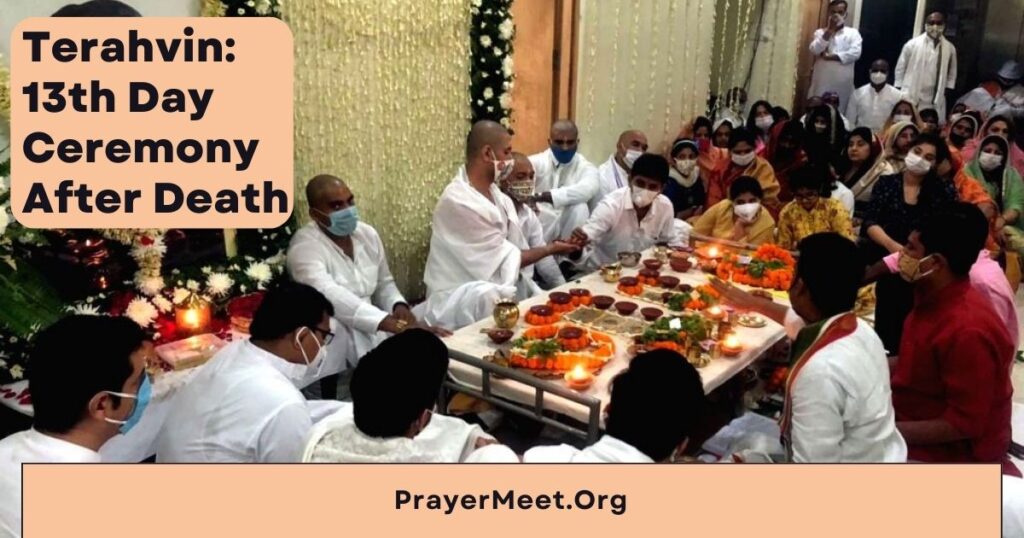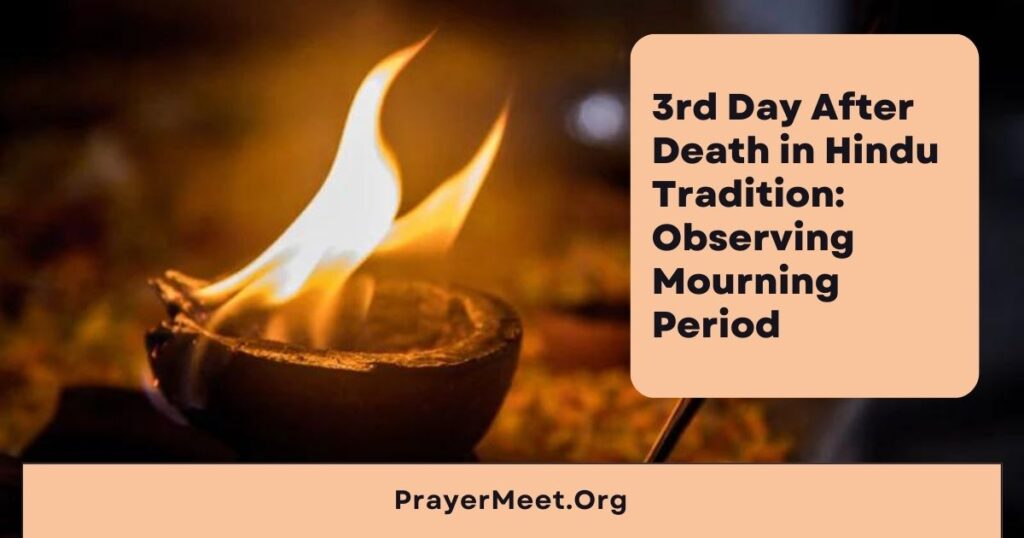The 12th day death ceremony is a solemn occasion marked by grief and pain. It allows family and loved ones to continue their journey of healing and remembrance. The grief experienced during this time can be deep, as the pain of loss is still fresh in the hearts of those left behind.
During the 12th day ceremony, rituals and prayers are performed to pay homage to the deceased and provide comfort and support to the grieving family. Through my experience as a shradhanjali singer, I have witnessed the transformative power of prayers and music in honoring departed souls. So, let’s get into the details of the 12th day ceremony and how you can honor the departed soul.
12th Day Death Ceremony Meaning
In this moment of loss and transition, the 12th day ceremony holds immense significance. This ceremony, known as the 12th day ceremony or “Sapindikaran shrāddha”, is a solemn occasion when family, friends, and loved ones gather to honor and remember the departed soul. It is a time of reflection, prayer, and remembrance, marking an important milestone in the grieving journey.
12th Day Death Ceremony Significance and Purpose

The 12th Day Death Ceremony is a significant observance to honor and remember the departed soul. It plays a vital role in the grieving process, providing space for remembrance and support. It provides a time for healing, and support, allowing loved ones to come together and offer prayers and condolences. This ceremony acknowledges the bond between the living and departed, offering solace and strength through collective prayers and memories.
Hindu 12th Day Death Ceremony Rituals
The 12th Day Death Ceremony Rituals are a way to honor the departed, offer prayers, and provide solace to the bereaved. These customs hold deep significance, recognizing the transition of the departed into the realm known as Pitrulok. By performing rituals and making offerings, we seek to nourish and comfort the departed on their spiritual journey. Prayers, hymns, and recitations invoke blessings and provide solace for the grieving family. These rituals create a sacred space for remembrance and offer support to the bereaved.
One of the central beliefs is that by performing these rituals, the departed soul attains the title of “Pitru” and acquires a respected position in the ancestral realm. The rituals typically include offerings of food, water, and other symbolic items to the departed soul. These offerings are made with utmost devotion and gratitude, as they are believed to nourish and provide comfort to the departed in their spiritual journey.
Procedure to follow on the 12th day after death
The 12th day is a time for reverence, reflection, and coming together to honor and remember the departed soul. These practices may vary based on beliefs and traditions. Common procedures that are often followed on this day are:-
- Prayer and Invocation: Begin the day with prayers and invocations to seek blessings for the departed soul through sacred texts, chants, or hymns led by religious leaders or family members.
- Offering and Puja: Honor the departed soul with offerings such as flowers, incense, water, and food items, symbolizing respect and nourishment. Perform a puja, a ritual of worship, seeking spiritual elevation for the departed and blessings for the family.
- Sharing Memories and Reflections: Gather with family and loved ones to share memories, anecdotes, and stories about the departed, fostering collective remembrance and celebration of their life.
- Feeding the Needy: Practice generosity and compassion by serving food to the needy or organizing a meal for family and friends, symbolizing the continuation of blessings from the departed soul.
- Prayers for Peace: Offer special prayers for the peace, well-being, and spiritual journey of the departed soul. Seek forgiveness, solace, and healing for family members during this time.
12th Day Death Ceremony Cost
When you lose someone, the cost becomes insignificant in comparison to the deep emotional impact of the loss. However, The cost of a 12th Day Death Ceremony varies based on cultural traditions, personal preferences, and the scale of the event. Expenses can include offerings, flowers, food, venue rental, transportation, and fees for religious leaders. Thus, you should consider the budget and consult with experienced individuals for accurate estimates and guidance in planning the ceremony.
Invitation to the 12th day of the death ceremony
You can send a heartfelt invitation for your cherished ones to join together in a gathering of solace and support, honoring and remembering the departed loved one.
Here is a template:
Join us in honoring the 12th day of the death ceremony for our beloved [Name of the departed]. Your presence and support are deeply valued as we pay our respects, offer prayers, and find solace in cherished memories. Date, time, and venue details are as follows:
Date: [Date]
Time: [Time]
Venue: [Location]
Please RSVP by [RSVP Date]. For any inquiries or further information, kindly reach us at [Contact details]. Thank you for your understanding and support during this time of remembrance and healing. We look forward to commemorating the life and legacy of our beloved [Name of the departed] together.
With heartfelt gratitude,
[Your Name]
Other Articles to Read:
- Prayer Meet Invitation: Remembering and Paying Tribute
- What Exactly is Life After Death?
- 3rd Day After Death in Hindu Tradition
- 16 days After Death: Pitru Paksha
- Terahvin: The 13th Day Ceremony After Death
- Death 11th Day Ceremony
Why are women not encouraged to perform the śrāddha rituals(last rites)?
Traditional customs and cultural beliefs have historically influenced the limited encouragement for women to perform śrāddha rituals or last rites. A commonly cited reason for women not being allowed to perform the last rites is based on the belief that long hair attracts negative energy and ghosts. Since women traditionally don’t cut their hair short or get bald like men, it is believed they are more susceptible to bringing back spirits or negative energy from the cremation process.
However, the participation of every woman who wishes to be present during the funeral of her loved one is a matter of significance and personal choice.


